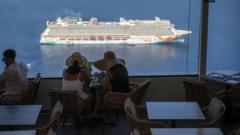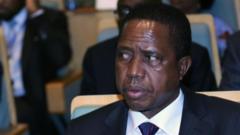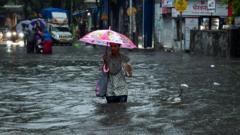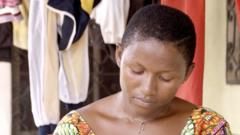As tremors continue to shake Santorini, the island's tourism industry is facing uncertainty with decreasing bookings and a potential labor shortage, prompting industry stakeholders to seek government support and infrastructure improvements.
Santorini's Tourism at Risk Amid Ongoing Earthquake Concerns

Santorini's Tourism at Risk Amid Ongoing Earthquake Concerns
The iconic Greek island faces a potential downturn in tourism due to a series of earthquakes, raising alarm for the crucial summer season.
In recent weeks, the picturesque Greek island of Santorini has been hit by numerous earthquakes, stirring concerns for this summer's crucial tourism season. February marks the unofficial kickoff for the influx of tourists, coinciding with the arrival of cruise ships and the Easter holidays. However, the seismic uncertainty has already led to cancellations, with one cruise line opting not to dock due to safety fears.
"We have noticed a decline in bookings recently, but we remain hopeful this will only be temporary," stated Antonis Pagonis, the president of Greece's Association of Hoteliers. Despite hopes for a robust tourist turnout, the island's hotels are bracing for a possible shortage of seasonal staff, a critical factor given that Santorini’s permanent population of over 15,000 accommodates tens of thousands of tourists daily during peak months.
Some seasonal workers are reconsidering their options in light of the unstable conditions. Manos, a bartender who has returned to Santorini for five consecutive summers, shared his concerns over potential income losses due to fewer tourists. Acknowledging the region's historical seismic activity, he has decided to accept a position in Corfu instead, a move echoed by other potential workers hesitant about the unpredictability of the situation.
Moreover, construction projects that are typically ramped up during this season are currently stalled due to safety concerns concerning the earthquakes. Hotel owners are pressing the government for continued financial support for workers until construction can resume. Pagonis mentioned that while the government has shown responsiveness, the actual implementation of assistance remains uncertain.
Despite governmental actions, including deploying rescue teams and declaring a state of emergency to facilitate aid, stakeholders in Santorini's tourism sector advocate for long-term reforms, such as improved infrastructure and stricter regulations on private rentals. Margarita Karamolegkou, a hotel owner with deep roots in the industry, indicated a need for significant upgrades, including a new port, to help manage the projected influx of over 160,000 daily visitors and 70,000 workers during peak seasons.
Santorini plays a pivotal role in Greece's economy, contributing approximately 2.5% to the nation's GDP with an estimated annual revenue of €5.9 billion. Although there have not been mass cancellations yet, a continued decline in tourist bookings could have lasting implications for local businesses if conditions do not stabilize quickly.
During a recent visit to the island, Prime Minister Kyriakos Mitsotakis emphasized the necessity of safeguarding the island's status as an iconic travel destination, asserting the government's commitment to protecting its esteemed reputation.
Karamolegkou, despite acknowledging the challenges ahead, remains optimistic. She believes her hotels will adapt even with a potentially reduced workforce, maintaining a standard of excellence that has characterized their operations over the decades.























